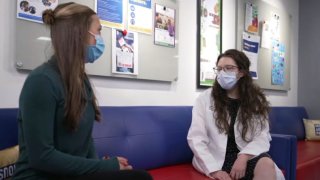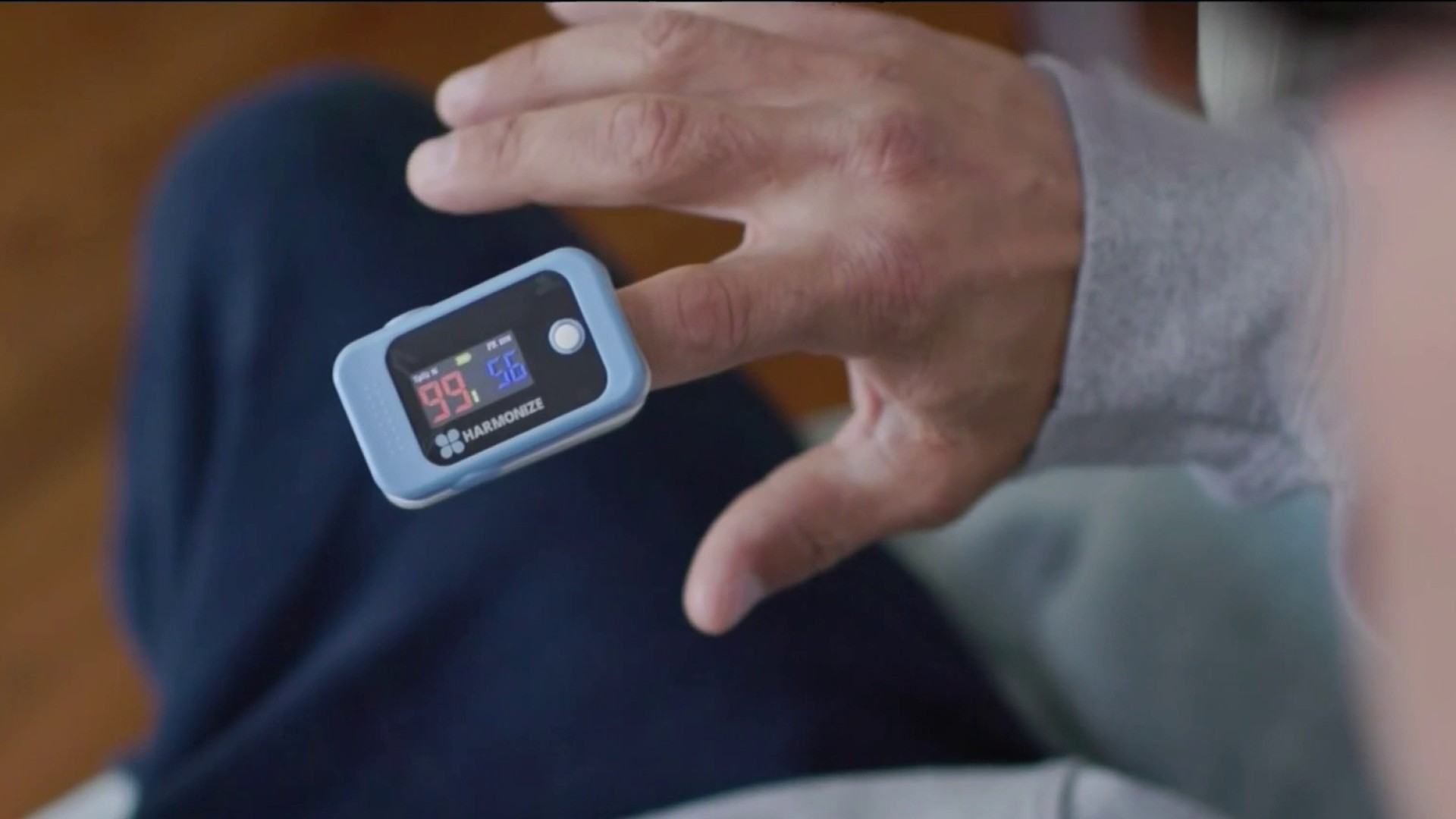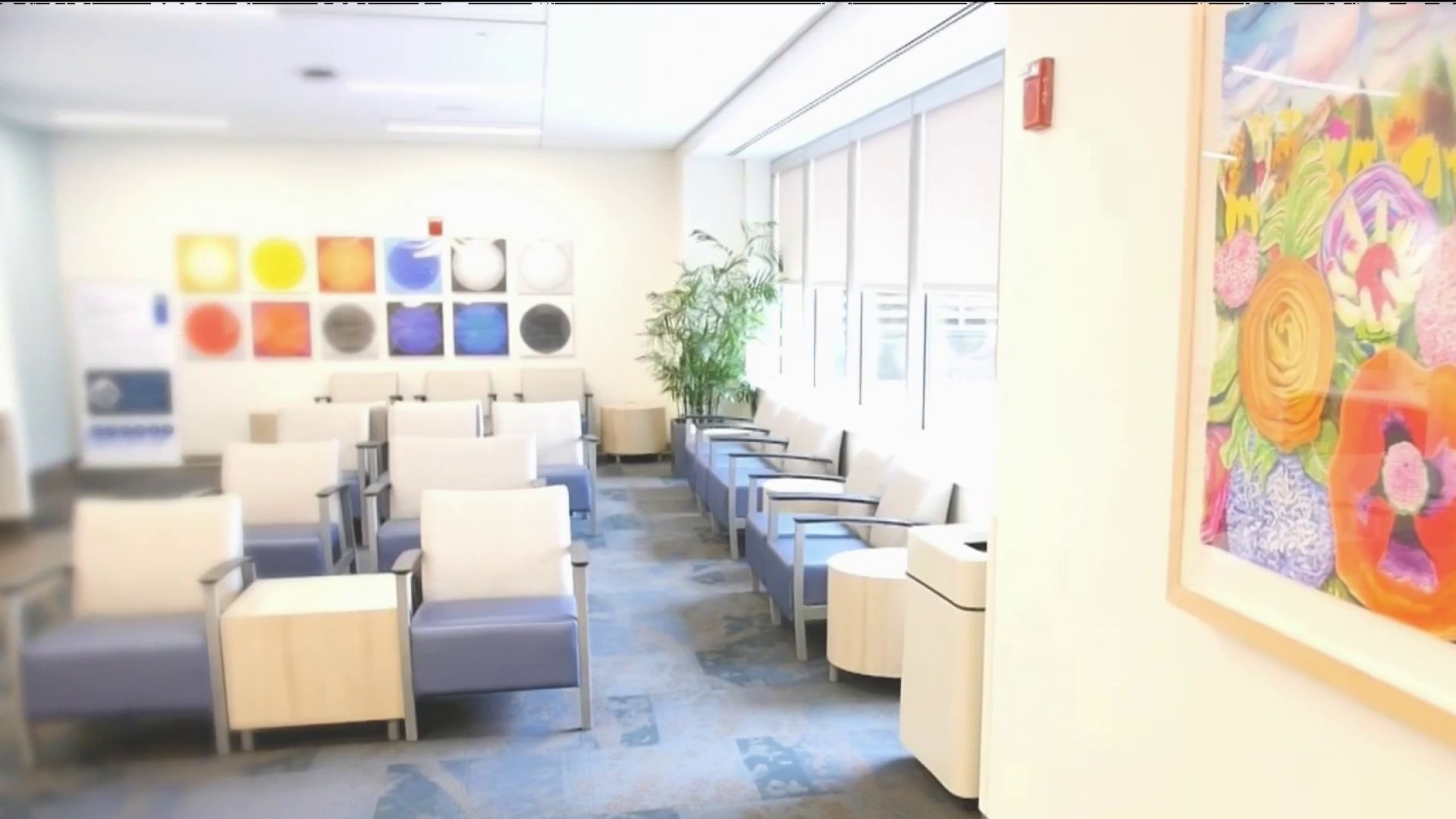
Being diagnosed with cancer is scary no matter how old you are, and it can be especially difficult for young adults who are at a critical stage in their life.
A unique program designed specifically for adolescents and young adults with cancer is helping them handle the physical, mental and social challenges on the road to recovery.
The survivorship program at Medstar Georgetown University Hospital helps those patients navigate life during and after treatment, giving them the resources to reintegrate back into society – including everything from school and social life to work and even starting a family.
Eileen Fauteux was a junior at Virginia Tech when life came to a sudden stop. Her symptoms started with severe back pain and tingling in her legs.
We're making it easier for you to find stories that matter with our new newsletter — The 4Front. Sign up here and get news that is important for you to your inbox.
"I was going from running six miles to then five to six days later, I was unable to walk on my own," Fauteux recalls.
"They immediately got me an MRI scan, which showed a tumor that was wrapping around my thoracic spinal cord," she said.
The diagnosis was Ewing sarcoma, a rare bone cancer that mainly affects children.
Fauteux had surgery to remove the tumor, followed by 13 months of chemotherapy and proton beam radiation therapy.
"You don't focus on anything else but gathering in all the love and support that you have from your friends and family and just focusing on surviving," Fauteux said. "You're not really living."
But six months after her treatment ended, Fauteux faced a new challenge: trying to keep up with a flurry of doctor’s appointments while also juggling the demands of school.
"People my age, we’re in college. We're not dependent on our parents any longer. All of this was under my responsibility, and it was overwhelming," she said.
But she says it was much more manageable thanks to Dr. Jeffrey Toretsky.
Dr. Toretsky is the chief of MedStar Georgetown University Hospital’s Pediatric, Adolescent and Young Adult Hematology Oncology program, designed specifically for cancer survivors between the ages of 15 and 39.
"At the end of the day, the person you want to take care of your cancer is the one who sees that kind of cancer the most," he said.
The survivorship program tailors a treatment plan and follow-up care for each patient, offering them access to psychologists, social workers and integrative medicine specialists along the way.
"It's not only diagnosing and treating the cancer correctly, but it's thinking about all of the other life issues that a patient has in those ages," Dr. Toretsky said.
"There's getting out of college, there's getting that first job. In some cases, it's even having starting a family, getting married," he said.
Fauteux said the program has been vital for her.
"It basically has filled a void in the medical field, because this did not exist, with me not having to worry about remembering my medications that I was given at the time," she said.
She said she's grateful for Dr. Toretsky's help.
"I love that he not only wants to check the box of treating, but he also is truly focusing on the psychosocial, the emotional, the physical and, you know, the the emotional aspect of just healing," she said.
Now 26, Fauteux is cancer-free and giving back in a meaningful way, working in spine surgery as a physician assistant.
"The survivorship program at Medstar Georgetown has not only allowed me to make my follow-up care and late effects that much less stressful, but it also has provided a community of people and practitioners that truly care about me and want the best for me and have watched me grow from start to finish, from shiny bald head to now being a P.A. with hair. So it's really come full circle," she said.
Studies show that many young adults underestimate the lingering impact of cancer treatment, which can occur months or even years later.
The survivorship program at MedStar Georgetown aims to change that. And while most centers stop admitting new pediatric patients at the age of 18, this program is open to all cancer survivors between the ages of 15 and 39.




